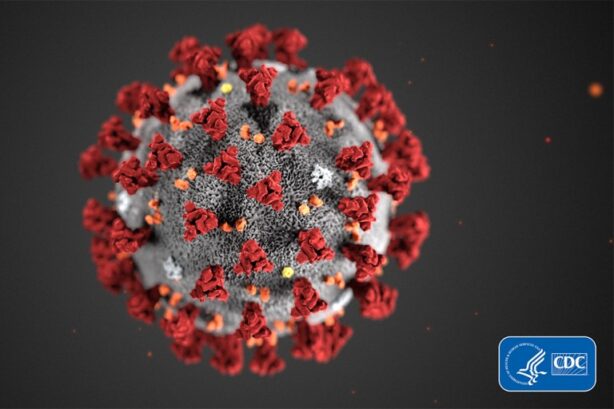DR. AMANDEEP SINGH (BVSc & AH, MVSc)
Veterinary Assistant Surgeon, Department of Sheep Husbandry,
Government of Jammu & Kashmir, India.
Former Research Scholar, Division of Extension Education,
ICAR-Indian Veterinary Research Institute, Izatnagar, UP, India

Since the coronavirus has resulted in pandemic, poultry industry in particular has faced its wrath. The Union Minister for Animal Husbandry and Dairying (India), Sh. Giriraj Singh, have stated that poultry industry in India is facing a net loss of Rs. 1500 to Rs. 2000 crore per day. The prices of eggs and poultry meat have reduced drastically varying from Rs. 180/kg to even at Rs. 10/kg at various places due to which the poultry farmers are in despair.
A net reduction of 70 percent have been witnessed in the prices of poultry products since coronavirus outbreak. Although the market prices of maize which is the key ingredient in poultry feed have fallen steeply but to no good hopes for the poultry producers, the consumers have also discontinued the consumption of poultry products due to coronavirus outbreak.
Many governmental organizations have time and again reported that the coronavirus do not spread through consumption of poultry products, still to add to information, the current article have been exclusively written to bust the myths and misinformation which was circulated through social media related to the consumption of poultry products and coronavirus spread.
Q: Does coronavirus spread through eating eggs?
A: No, coronavirus does not spread through consumption of eggs. Although there are other pathogens like Salmonella, Mycoplasma, Chlamydia, reovirus, etc. which can spread through eating uncooked or raw eggs. It is always advisable to properly cook the eggs before consumption.

Q: Does coronavirus spread through eating poultry meat?
A: No, coronavirus does not spread through consumption of poultry meat. The other pathogens that spread through raw or uncooked meat are Salmonella, Campylobacter, Staphylococcus, E. coli, etc. Do not purchase dead bird for consumption and always cook the meat properly (atleast 20 minutes over 80 oC) before consumption.
Q: Does coronavirus spread from poultry to humans?
A: There are no reports of coronavirus spreading from poultry to humans. Neither it is reported in meat nor in eggs, which makes eggs and meat safe for consumption.
Q: At what temperature coronavirus dies?
A: Various studies have reported that coronavirus loses its viability at temperatures more than 38 oC and let us suppose that even if it present in meat and eggs, such high temperatures of cooking can easily neutralize the virus rendering poultry products virus free.

Q: How does eggs and meat affect immunity?
A: Eggs and meat boost the immune system of an individual due to the presence of Vitamin A which is required for strengthening immunity. Therefore, eggs and meat will help fighting coronavirus in a way.
Q: Does government support consumption of poultry products in coronavirus outbreak?
A: Yes. Various governmental organization have time and again came up with advisory favoring consumption of poultry products. Animal Husbandry Commissioner (GoI), Food Safety & Standards Authority of India (FSSAI), National Egg Coordination Committee (NECC), etc. have stated the consumption of poultry products safe in coronavirus outbreak.
Q: How to prevent foodborne diseases originating from consumption of animal products?
A: The following steps shall be taken for prevention of foodborne diseases:
* Indian style of cooking is very efficient in neutralizing most of the pathogens as it is based on moist heat treatment. It is advisable to properly cook foods of animal origin before consumption. Cooking the food for atleast 20 minutes over 80 oC is recommended.
* Cooked food should not be mixed with uncooked food as it leads to contamination.
* Avoid consumption of raw eggs, meat or milk as it leads to spread of diseases.
* Foods of animal origin should be properly refrigerated as it reduces the chances of microbial growth.
* Do not store foods of animal origin for a longer time.
* Buy food from a good, hygienic place following the guidelines of FSSAI.
*Apply good kitchen hygiene and practices for cooking the food like washing hands before cooking, washing utensils, cutting boards, dishes, etc. before and after cooking, cleansing the dishes with clean paper towel or dish cloth before eating, cleaning the kitchen tops and shelves regularly, covering the cooked food with lid, etc.
*It is advisable to rinse meat before cooking if purchased from roadside shop.
* In case of outbreak, report the disease to your doctor or health department.
Q: How does discontinuing poultry products affect the poultry farmers?
A: Broiler birds reared for meat have rearing cycle of 28 to 42 days and layer birds reared for eggs lay first egg after intensive hardwork of 20 to 22 weeks. The costs associated with feeding, healthcare and labor are huge which takes a huge toll on poultry farmers. Poultry business is very sensitive in nature as any outbreak, be it related to poultry or not, levies a great loss on farmers. So, if we empathize with our farmers, we will get to know that all their hardwork goes in vain when any hoax call or misinformation spreads. In such inclement conditions, it becomes our responsibility to support our farmers so that they can breakeven their inputs incurred on poultry farming by searching and believing on the credible information.
Q: What are the things to stay away from during coronavirus outbreak?
A: Misinformation, coronavirus infected individual, overthinking about coronavirus outbreak and unrequired outings.



